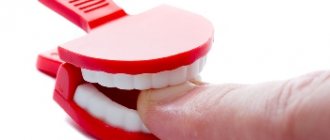What is kleptomania
Kleptomania
- This is a painful craving for committing thefts. At the same time, the goal of a kleptomaniac is not to own a stolen item: he only wants to “relieve tension” or enjoy the process itself.
That is why kleptomaniacs are distinguished by strange, at first glance, features of theft: for example, in a shoe store he can only take one shoe, which means that he does not need shoes at all, he just wants to steal something.
Kleptomania is infrequently diagnosed, and the true prevalence of the disease is unknown. After all, many patients do not want to tell the whole truth even to the doctor, so as not to spoil their reputation (especially if these are famous and respected people); kleptomania is also often feigned by real thieves in order to evade criminal liability.
But something was still established. American experts have found that kleptomaniacs make up 5% of shoplifters. And Canadian scientists have found that middle-aged women most often suffer from kleptomania.
Kleptomania is rare in childhood. It happens that children steal other people's things, but this is explained by other reasons: protest behavior, immaturity, immaturity of desires, and shortcomings in upbringing.
Kleptomania was first described in 1816. Then it was considered “monomania” - that’s what they called the patient’s hypothetical obsession with one particular object or action. Since then, the study of the true causes of kleptomania has progressed significantly, but even today scientists do not know everything about it.
Age characteristics
Preschoolers
Kleptomania is associated primarily with the emotional-volitional sphere of the personality, which begins to form only by the age of 6-7 years. Therefore, this disorder is not diagnosed in preschool children. All of them are capable of taking what belongs to others, even if they know that this should not be done. Kids in the sandbox take away each other's scoops and buckets, in kindergarten they take toys that do not belong to them, and at home they can even steal anything without asking. This cannot be considered theft. But you shouldn’t take such moments lightly either.
If parents ignore such situations while the baby is still a preschooler, in the future this may result in the development of kleptomania. Therefore, it is necessary to constantly conduct preventive educational conversations about the fact that taking someone else’s is not good.
Junior schoolchildren
Most often, kleptomania is diagnosed in younger schoolchildren. This is due to the fact that at this age they still do not know how to hide their emotions: it is immediately clear from them that they did it, or they themselves admit to what they did. They are easy to catch because they are unable to cover their tracks.
This plays into their hands, since if the disorder is detected early, there is every chance of finally ridding the child of kleptomania. For the purpose of correction, the psychotherapist conducts a series of sessions, parents and teachers, for their part, organize preventive conversations.
Despite the fact that a corrective psychotherapeutic course at such an early age turns out to be a very effective treatment, such a child must be constantly monitored - even in the absence of relapses.
Teenagers
With teenage kleptomania, everything is much more complicated. Firstly, it becomes more difficult to catch someone stealing, as they acquire the skill of covering their tracks and doing everything secretly. Secondly, it is quite difficult even for a specialist to distinguish a mental disorder from a consciously planned event. Teenagers often become members of various groups. Wanting to assert themselves, they resort to theft. Experts have no consensus on how to approach such situations. Thirdly, from the age of 14, children become criminally punishable.
Sometimes a tendency towards kleptomania in school-age children is detected during test questionnaires, which are routinely carried out by staff psychologists or teachers.
Reasons for the development of the disorder
Kleptomania is one of the so-called impulse disorders. The causes of such diseases are still unknown, but it has been noted that they are systemic in nature, that is, they are accompanied by other disorders. Kleptomania is often combined with anxiety disorder, eating disorders, drug addiction, alcoholism and some other disorders.
The cause of kleptomania has been associated with endocrine system disorders, pregnancy or menstruation. It has been noticed that kleptomania activates or becomes more pronounced after some stressful situation.
It is known that some patients perceived the act of theft as something like moral compensation for the suffering they experienced, a kind of reward. Kleptolagnia is also known, a type of kleptomania in which theft becomes a means of compensating for sexual dissatisfaction. For example, a person needs an additional emotion (fear, anxiety), which increases sexual arousal, and for this he commits thefts.
In the common form of kleptomania, patients use fear to artificially stimulate the production of adrenaline, which increases dopamine levels. Subsequently, a conditioned reflex is established, a kind of addiction: the patient can receive pleasure only by performing certain actions, in this case theft.
Kleptomania can be one of the manifestations of pregnancy. In this situation, women generally tend to behave strangely, do ridiculous things, and express inappropriate thoughts and desires.
It is clear that during the examination, the specialist must take an individual approach to each patient.
"Favorite" things of kleptomaniacs
In this section we will talk about those items and things that kleptomaniacs prefer to steal from stores, from their friends and relatives, or at work.
It should be said that in Western countries, some large supermarkets install special containers filled with low-value goods specifically for pathological kleptomaniacs. This shows how widespread this problem is.
The favorite objects of theft of kleptomaniacs include:
- confectionery, especially in bright packaging;
- ballpoint pens;
- colorful cards;
- cheap jewelry;
- cosmetics and hygiene products;
- glass objects.
A kleptomaniac will never encroach on expensive or bulky items, because he understands that, firstly, it is difficult to steal them, and secondly, the responsibility for such theft is much higher than for a stolen pencil or vase.
The first cases of theft usually take place near the place of residence of the dependent person, then, in order not to take risks and not attract attention, she moves to a neighboring area, and sometimes even goes to a neighboring city for these purposes. However, these “forays” usually end badly, because sooner or later the kleptomaniac comes under the radar of law enforcement agencies, to whom it is quite problematic to explain the nature of his illness.
Altruist - his character, motives, advantages and disadvantages
The main symptoms of kleptomania
Of all the symptoms of kleptomania, it is customary to distinguish the obligatory “triad”
:
- Compulsive need to commit thefts.
- Getting pleasure from the action done.
- The appearance of a feeling of guilt some time after the act has been committed.
Kleptomania is cyclical. First there is tension; the patient ceases to enjoy all other activities, and the feeling of anxiety and restlessness increases. At the next stage, the patient commits an act of theft. The tension is replaced by an equally tangible relaxation and a feeling of satisfaction. At the next stage, relaxation and satisfaction disappear and are replaced by a feeling of guilt. Since the majority of kleptomaniacs are law-abiding people who live in accordance with public moral norms, the increasing feeling of guilt also gives rise to a feeling of anxiety and restlessness; Insomnia and a feeling of general internal tension increase. This is the beginning of a new cycle of kleptomania.
A patient suffering from kleptomania most often carries out his thefts in large shopping centers. But not always. Sometimes he steals from friends, acquaintances, and employees. Often an item may be so worthless that a kleptomaniac immediately throws it away. He may also try to give it to someone or return it to its place.
Most often, a patient suffering from kleptomania steals cosmetics, personal hygiene items (hairpins, combs, soap, etc.), stationery, clothing, food, especially sweets. Most often these are small things.
Kleptomania is also fraught with complications. A constant feeling of anxiety can give rise to depression, anxiety disorders, and social isolation. The patient develops suicidal thoughts, which in some cases can be realized. In addition to mental and psychological consequences, there are also legal consequences: administrative punishment, the need to compensate for damage, criminal record, compulsory treatment.
Famous kleptomaniacs
The yellow press never tires of exposing the idols of many thousands of people, presenting them with such hot facts:
- Winona Ryder. Johnny Depp's ex-girlfriend flatly refuses the title of kleptomaniac awarded to her. However, at one time she was caught in the act when she made an unsuccessful attempt to take out almost six thousand dollars worth of boutique products. At the same time, the famous actress put forward two versions of her very strange act. At first she claimed that she was quite absent-minded and often forgot to pay for purchases at the store. Having forgotten about the first version, Winona began to passionately convince the guards that her more than obvious kleptomania was a way to get used to the new role.
- Henry IV. The voiced monarch liked to take some trinket as a souvenir when visiting. Then he returned it with the words that it was only a joke. However, historians doubt that such an influential person stole solely for her own pleasure. Henry IV clearly had kleptomania, which he was ashamed of because of the possible exposure of his destructive passion to the public.
- Olga Korbut. A famous gymnast in the past caused a big scandal in the United States. The American police were shocked by the call they received, which reported that Olga was trying to take food out of the market. The famous personality coveted a piece of cheese, sparkling water, chocolate syrup and a few other little things, which in total did not cost even twenty dollars.
Manifestation of kleptomania in children
Children's impulsiveness can cause kleptomania at an early age. Children often steal money from their parents. They can be driven by a real lack of money for pocket expenses, and a desire to attract the attention of parents (if the child believes that they are not paying enough attention), and a desire to prove to others how dexterous, smart and cunning he is. Kleptomania can also develop due to the fact that the child got into bad company.
Also, childhood kleptomania can be a consequence of mental or mental illness.
In any case, kleptomania is one of the signs of immature child thinking. Impulsivity should normally subside by age six; then the child also begins to understand moral norms, the rules of social life. If this does not happen before the specified age, we can talk about delayed mental or mental development.
Establishing diagnosis
Diagnosing kleptomania has its own characteristics. The specialist must exclude the possibility of other diseases that push the patient to commit certain actions, including theft.
Here are signs to help identify kleptomania
:
- The patient is unable to overcome the impulse to steal an object that is not necessary for him and has no value for him. This condition must occur every time.
- The patient feels increasing psychological pressure before committing theft.
- After committing a theft, a feeling of peace and satisfaction follows.
- The theft is not committed out of a feeling of revenge or hostility, or under the influence of hallucinations or delusions.
- Theft is not associated with conduct disorder, antisocial personality disorder, or bipolar disorder.
ICD-10 code
Official medicine classifies kleptomania as a disorder of habits and desires. In the medical classification of diseases, it belongs to the heading F63 .
It describes the disease as a permanent disorder that manifests itself as a result of a combination of certain external (favorable circumstances) and internal factors (acute desire to steal) leading to theft.
Kleptomaniacs cannot give a rational explanation for their actions; they are upset by their own behavior, but they have no ability to control their desire; the disease completely controls their consciousness and determines their actions.
Video:
Contact a specialist: treatment regimen
Kleptomania must be treated with complex methods. Both psychotherapy and medications are used. At the same time, a single remedy for kleptomania has not yet been developed, and each patient must be approached individually.
Among psychological methods, cognitive-behavioral methods stand out. They allow you to change negative thoughts to brighter, more positive ones. The following method is also used: the specialist puts the patient into a psychological state in which he imagines himself exposed at the time of the theft.
Medicines used include anticonvulsants, antidepressants, and mood stabilizers.
When treating kleptomania in children, you should not scold them or accuse them of stealing. The fight against the disease should be done gently, because it is still a disease, and not just a bad character trait. If a child stole a toy, it would be wisest to give him the same one. During treatment, all provoking factors should be eliminated: do not leave money and jewelry in a visible place; provide the child with personal belongings for which he himself is responsible.
When treating kleptomania, much depends on the details of the patient's life; for example, what kind of relationship he has with loved ones.
You can use some relaxation techniques. It is important for the patient to exclude the possibility of getting into stressful situations and maintain sufficient physical activity.
Features of diagnosis and treatment
The diagnosis of “kleptomania” can only be made by a psychiatrist based on the following factors inherent to the patient:
- the presence of a desire to steal something that he does not need at all, both for use and for obtaining material gain;
- understanding the abnormality of such a desire;
- periodic attempts to resist one’s attraction;
- before the theft, he feels strong nervous tension and, at the same time, anticipates receiving pleasure;
- after what he did, he feels relief and satisfaction;
- the desire to steal is not driven by revenge or resentment;
- “goes to work” only alone and without a pre-developed plan - the theft is committed spontaneously;
- steals not every day, but some time after the crime has been committed - when the feeling of euphoria has ended.
The psychiatrist must also rule out whether the patient has a schizophrenic disorder.
It is impossible to fight kleptomania on your own: this is akin to the slogan “Bees against honey.” Only specialists can help deal with it. Before starting treatment, a detailed examination of the patient’s mental and physical condition is carried out. The first includes a special questionnaire, and the second includes biochemical and “sugar” blood tests, CT, and MRI. The latter will allow you to determine the presence of metabolic disorders or pathological changes in the brain.
The psychiatrist selects treatment individually for each patient; it involves the integrated use of medications and psychotherapy.
Today there is no single medicine that can relieve addiction. Among the pharmaceuticals, depending on the situation, the following are prescribed:
- mood stabilizers;
- antidepressants;
- B vitamins, minerals.
The doctor, observing the patient, strictly normalizes the dosage and can change the drug to another if necessary.
The difference between a thief and a kleptomaniac
From all that has been said above, it can be understood that kleptomania as a disease has nothing in common with theft as a socially dangerous activity. A thief has material benefits from his activities, while a kleptomaniac does not. A thief is proud of his achievements, while a kleptomaniac feels pleasure only at the moment of committing the theft, and before and after it he experiences tension and remorse. The kleptomaniac regrets what he did, but cannot stop taking other people's things.
Kleptomaniacs experience low self-esteem; They also tend to be alone, which also has a painful effect on their well-being.
It must be said that kleptomania does not depend in any way on the patient’s standard of living. Very often these are people from wealthy families, they have everything so that they do not feel the need to steal at all.
Kleptomania is a mitigating factor during legal proceedings. However, the fact of a mental disorder must be established. The investigator must be alerted to the “non-standard” behavior of the thief (theft of things that have no value, theft of incomplete sets, while the stolen item has no meaning: for example, one shoe, one glove instead of two, a bicycle wheel, etc.).
Kleptomania is a fairly rare disease, but this does not mean that it does not occur in celebrities. Thus, one of the most famous kleptomaniacs is Britney Spears. She mainly steals lighters from gas stations and wigs from sex shops. She was often caught doing this by salespeople; however, they did not dare to hand over the “criminal” to the police, since she was, after all, a celebrity, and the stolen things did not have any significant value. However, sometimes the artist manages to steal something more valuable; once, for example, these were several fur coats, the total cost of which exceeded 28 thousand dollars.
More luxurious items are stolen by Lindsay Lohan. Earrings, necklaces, necklaces - all from the best jewelry companies. This celebrity failed to escape responsibility: in 2011, for another theft, the court sentenced her to a short prison term and correctional labor.
Actor Robert Pattison is very capricious in terms of outfits. During the filming of one film, he rejected the costumes offered to him, then he was allowed to choose clothes to his liking. Not wanting to part with the outfit, he subsequently took it with him from the dressing room.
Kim Kardashian has a habit of talking on other people's phones; then she hides these devices for herself, and if the need comes to give them away, she does it reluctantly. At the same time, she has several of her own phones.
There have been famous kleptomaniacs in history. King Henry IV was known for constantly stealing small items from his courtiers. True, he soon returned the item to the owner, laughing at how cleverly he had tricked him.
There are also kleptomaniacs among Russian celebrities. It is known that Dima Bilan loves to steal lighters. And Nikolai Baskov was once caught stealing tangerines from a hotel.
As already mentioned, kleptomaniacs most often steal things that have no value to them. In this sense, there are quite unusual “exhibits”. One football coach stole... a medical centrifuge to conduct a blood test. He did this “just in case” - in case the device came in handy! In fact, he most likely just liked the process of appropriating someone else's things. By the way, the incident occurred in Russia.
Prevention
Is there any way to avoid developing kleptomania in your child? Yes, if you follow these recommendations:
- educate by example - never take anything that belongs to others;
- read or compose, and then tell the child such fairy tales or stories in which theft is condemned and a vivid image is given that it is not good;
- explain to the offspring that everyone in the family has their own things and cannot take them without asking;
- give the child the idea that the money used to buy something is earned through hard work;
- teach how to save donated money in order to later buy the desired thing with it;
- devote a lot of time to your child and his upbringing, exercise reasonable control over him;
- establish frank, close, warm relationships in the family;
- react properly at the first episode of theft.
Kleptomania in young children and schoolchildren is a very serious problem, and it should not be left to chance. Openness in the family, vigilance, and proper education can prevent such pathology. And if this happened, then the correct reaction will make the theft an isolated episode.










